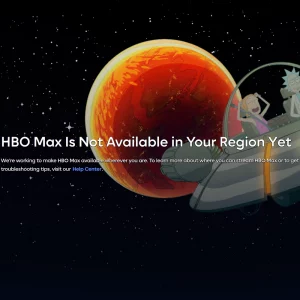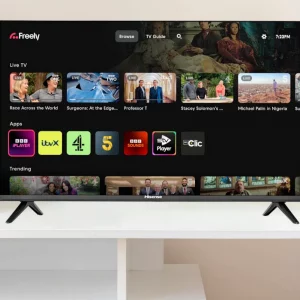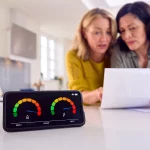Sponsored Links
UPDATE Ofcom Reveals UK Average Mobile Broadband Speeds of Just 1.5Mbps
Posted: 26th May, 2011 By: MarkJ

 The communications regulator, Ofcom UK, has today published its first research into the country's national Mobile Broadband speeds and found that the average download speed was just 1.5Mbps (Megabits per second) - rising to 2.1Mbps in areas of "good 3G coverage". By contrast the national average download speed for fixed line broadband ISP connections is 6.2Mbps (here).
The communications regulator, Ofcom UK, has today published its first research into the country's national Mobile Broadband speeds and found that the average download speed was just 1.5Mbps (Megabits per second) - rising to 2.1Mbps in areas of "good 3G coverage". By contrast the national average download speed for fixed line broadband ISP connections is 6.2Mbps (here).Ofcom's Chief Executive, Ed Richards, said:
"This research gives consumers a clearer picture of the performance of mobile broadband dongle and datacards as consumers use these services to complement fixed-line services or sometimes as their principal means of accessing online services.
The research is another important step in Ofcom’s efforts to ensure that consumers have the information they need to exercise their choice effectively and to make the most of competition in the market."
"This research gives consumers a clearer picture of the performance of mobile broadband dongle and datacards as consumers use these services to complement fixed-line services or sometimes as their principal means of accessing online services.
The research is another important step in Ofcom’s efforts to ensure that consumers have the information they need to exercise their choice effectively and to make the most of competition in the market."
The report, which used data from 4.2 million tests conducted by Epitiro, looked specifically at the performance of Mobile Network Operators (MNO) that used USB Modems (Dongles) and Datacards for their mobile internet connectivity. It did not include data from Smartphone's.

Ofcom also revealed that 17% of UK households are making use of Mobile Broadband services and 7% were using it as their only means of internet access (up sharply from 3% in 2009). This could be worrying news for fixed line providers. Overall O2 , Vodafone and Three (3) came out top for speed, while Orange and T-Mobile (Everything Everywhere) were the slowest. O2 also had the lowest latency (lower latency is good for gaming, skype etc.),

Interestingly mobile operators managed to deliver an average upload speed of 0.67Mbps, which compares well with an average of 0.5Mbps for 'up to' 8Mbps fixed line broadband ISPs. Once again Orange was the slowest.

The study also identified that two operators , O2 and T-Mobile , were using image compression methods to reduce bandwidth consumption and speed-up page loading. Vodafone use to do the same but stopped sometime ago. The downside to this is that some web images can appear to be quite distorted.
Meanwhile Ofcom rightly expects Mobile Broadband to improve over the coming years as newer technologies, such as 4G LTE, enter the market with faster speeds, lower latency and better capacity management.
UPDATE 12:53pm
Added a comment from the consumer group, Consumer Focus, below.
Adam Scorer, Director of External Affairs at Consumer Focus, said:
"Ofcom's research shows that the small number of consumers relying on mobile broadband to get access to the internet, is increasing. Yet coverage for mobile and fixed broadband is still patchy – leaving a lottery for consumers who want to get online, especially in rural and remote areas.
The internet is increasingly important for consumers to access public services and get the best online deals. So, it is essential for consumers that the Government and telecoms industry work together to make sure reliable broadband is available to everyone regardless of location. In the meantime we would urge consumers to check coverage in their area before signing up to any deal."
"Ofcom's research shows that the small number of consumers relying on mobile broadband to get access to the internet, is increasing. Yet coverage for mobile and fixed broadband is still patchy – leaving a lottery for consumers who want to get online, especially in rural and remote areas.
The internet is increasingly important for consumers to access public services and get the best online deals. So, it is essential for consumers that the Government and telecoms industry work together to make sure reliable broadband is available to everyone regardless of location. In the meantime we would urge consumers to check coverage in their area before signing up to any deal."
Search ISP News
Search ISP Listings
Search ISP Reviews
Latest UK ISP News








Cheap BIG ISPs for 100Mbps+
150,000+ Customers | View More ISPs
Cheapest ISPs for 100Mbps+
Modest Availability | View More ISPs
Latest UK ISP News
Helpful ISP Guides and Tips
Sponsored Links
The Top 15 Category Tags
- FTTP (6768)
- BT (3873)
- Politics (3061)
- Business (2752)
- Openreach (2651)
- Building Digital UK (2504)
- Mobile Broadband (2458)
- FTTC (2139)
- Statistics (2118)
- 4G (2079)
- Virgin Media (2011)
- Ofcom Regulation (1773)
- 5G (1716)
- Fibre Optic (1597)
- Wireless Internet (1591)
Sponsored
Copyright © 1999 to Present - ISPreview.co.uk - All Rights Reserved - Terms , Privacy and Cookie Policy , Links , Website Rules
































